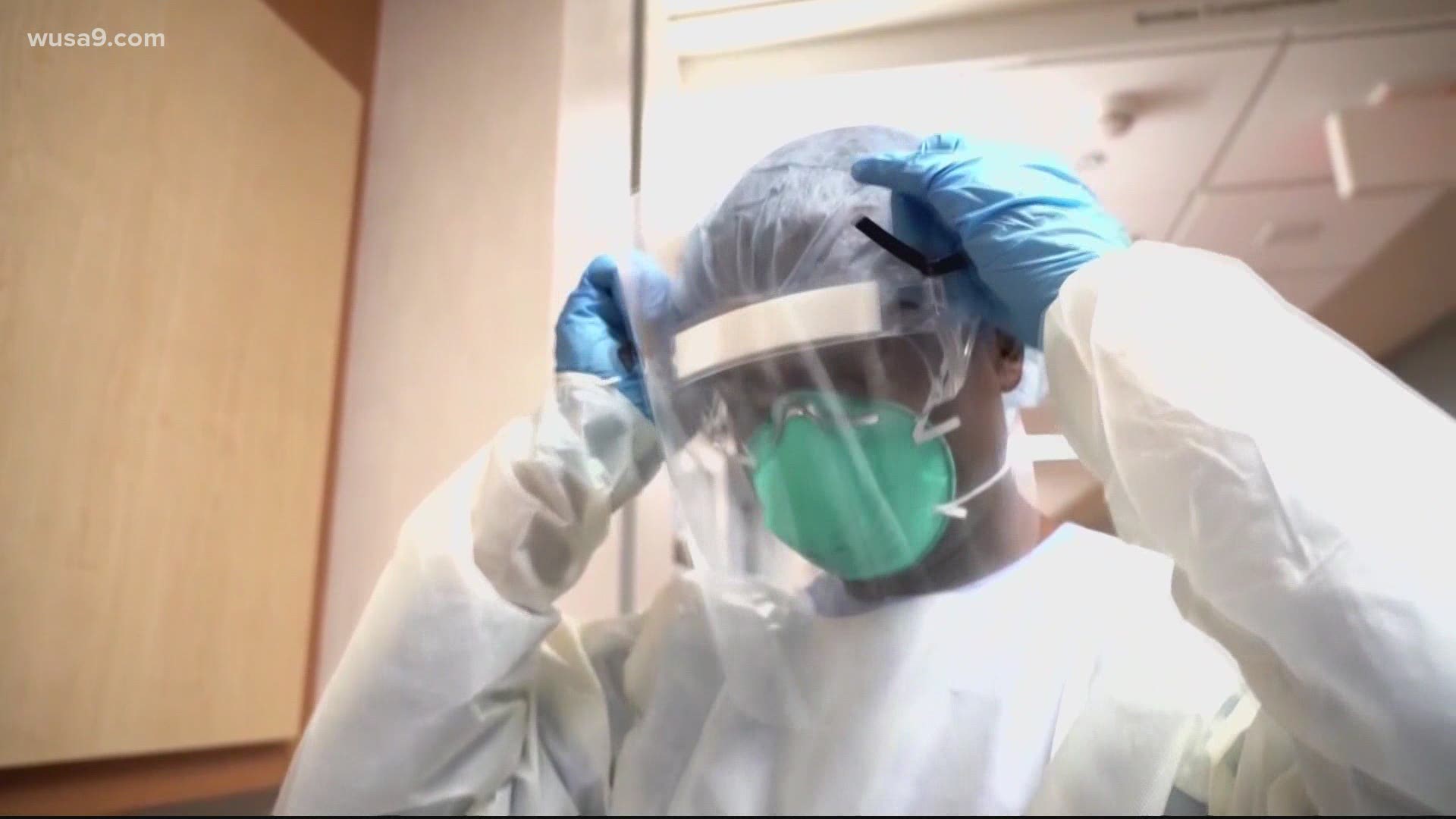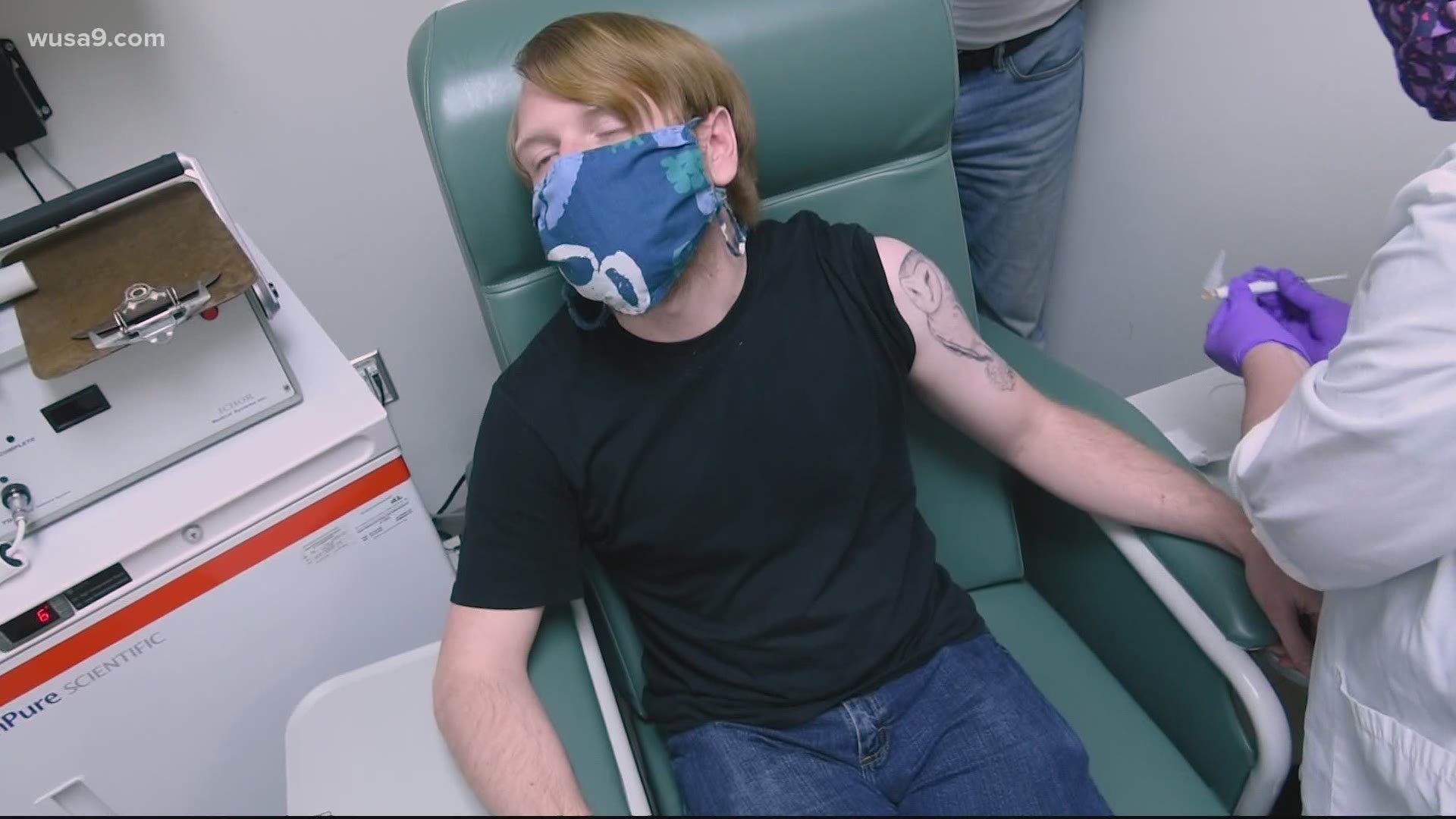BALTIMORE — With Moderna announcing a 94.5% efficacy for its COVID-19 vaccine, a University of Maryland researcher said this clinical trial is a huge advancement for science.
On Monday, Moderna shared that preliminary analysis shows a 94.5% efficacy, with 95 of the 30,000 participants contracting the coronavirus. The company said only five of those people had received the vaccine.
Dr. Matthew Laurens serves as the principal investigator and associate professor of pediatrics at the University of Maryland School of Medicine. His team began recruiting volunteers for the Moderna vaccine trial in August, and the team has since administered two doses (half placebo, half vaccine) to nearly 500 people.
“To put it in perspective, I believe the target for efficacy was around 50%, and we would have been very happy with a vaccine that was at least 50% efficacious, and we thought we would be very happy with a vaccine if it were 75% efficacious," Dr. Laurens said. "Above 90% is extremely high and very encouraging for a vaccine. Other vaccines that would be comparable would be the measles vaccine, which is also highly efficacious, but again this is not exactly what we expected, but highly welcome.”
Dr. Laurens said the flu vaccine is typically about 50% efficacious, depending on the strain, the year, and the match.
One of the big concern from minority advocates as researchers were recruiting participants is the diversity in the sample population. Dr. Laurens said they were able to recruit more than 50% non-White individuals to participate in the trial.
“We do plan to follow these individuals for two years because it’s important to look at how long this vaccine protects against COVID-19, and how long the immune response is there, so that’s the initial intent and that is still an outstanding question,” he said.
Moderna also said that the vaccine is able to be stored at a normal refrigerator temperature for 30 days and retain potency. Dr. Laurens said that's similar to other vaccines, like the seasonal flu vaccine.
"It can also remain at room temperature for up to 12 hours. So again these are very encouraging results and can enhance distribution for this vaccine in addition to the high efficacy," Dr. Laurens said.
Even though Moderna said it can have 20 million doses available by the end of 2020, Dr. Laurens said this is only the beginning of the trial. Next, he said they will continue to document the safety of the vaccine and submit it as part of the emergency authorization package for the FDA to review.
He said the FDA requires a median of two months of safety follow-up for all participants in studies. From there, he said they will continue to look at the immune response, and how long that immune response is effective.
“This represents a huge advance for science. Not only have we gone from translating the genomics of a virus to the development of a vaccine in a rapid time frame, but we’ve also been able to conduct a vaccine efficacy in the middle of a pandemic that is actually going to influence the pandemic hopefully," Dr. Laurens said. "So this is not been accomplished previously and is something that truly represents efficacy as well as basic research that has gone to translational science … so it's something we haven’t seen before, but we’re certainly excited about.”
He said it's particularly encouraging that Moderna's preliminary results echo a similar efficacy to other vaccines that used the spike protein.
"We need all the vaccines we can get at this point, because we have a large pandemic that is essentially out of control, so more vaccine manufacturers means more vaccine availability especially to the vulnerable populations," Dr. Laurens said.
He said the timeline of availability for the vaccine depends on a release plan established by state and federal governments, but he hopes to see it available in Spring 2020.


